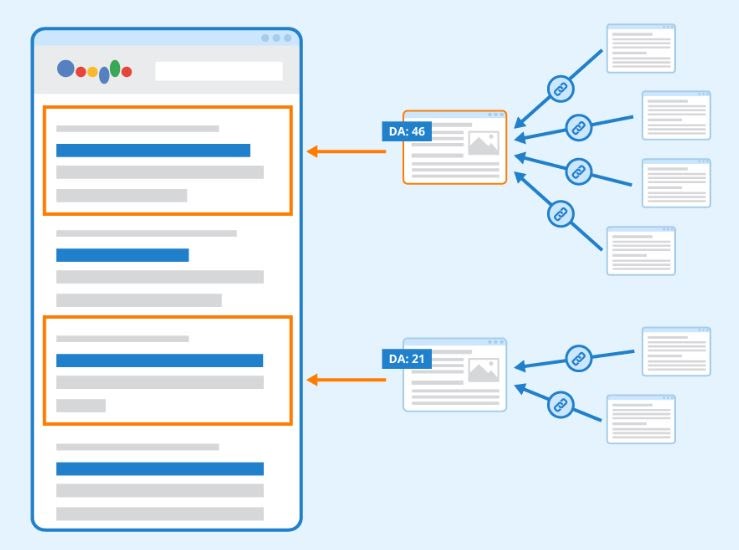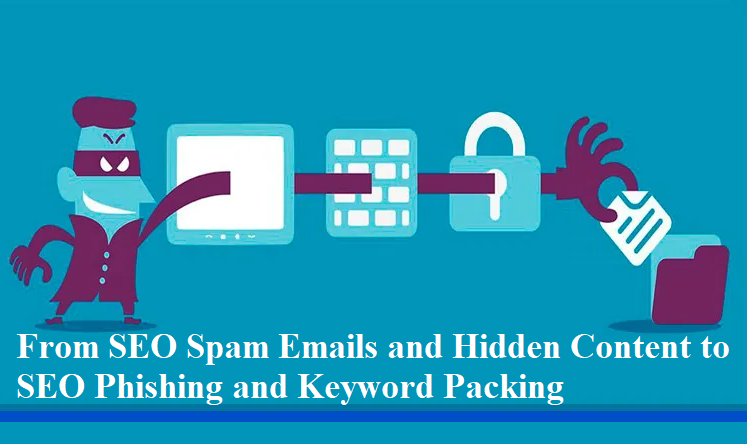Search Engine Optimization (SEO) is crucial for enhancing online visibility, but in recent years, various shady practices have emerged, particularly on platforms like Reddit. Fake SEO tactics often lure unsuspecting businesses and website owners with promises of instant rankings. However, these black-hat methods can damage your website's reputation and lead to severe penalties from search engines. In this article, we’ll dive deep into the causes of fake SEO, highlighting SEO spam emails, hidden content, keyword packing, and more. We’ll also discuss tools like SEO spam checkers and how to avoid these scams.
1. What is Fake SEO?
Fake SEO refers to unethical and misleading practices designed to trick search engines into ranking a website higher than it deserves. These tactics violate Google’s Webmaster Guidelines and can result in penalties or even de-indexing of your website from search engines.2. Causes of Fake SEO on Reddit
Reddit is a community-driven platform with subreddits dedicated to every imaginable topic, including SEO. While there are legitimate SEO experts who share valuable insights, the platform also harbors scammers promoting fake SEO strategies. These tactics often include:- Promises of guaranteed top rankings within a short period
- Misleading SEO advice that violates search engine guidelines
- Fake case studies or testimonials to lure businesses
3. SEO Spam Emails
SEO spam emails are one of the most common causes of fake SEO. These emails often promise significant improvements in your website’s ranking within days. They usually claim that your website is poorly optimized and that their services can fix it. Some signs of SEO spam emails include:- Generic greetings and lack of personalization
- No clear details about the services offered
- Unrealistic promises of quick results
- Links to fake portfolios or testimonials
4. What is SEO Spam?
SEO spam refers to unethical practices like link farming, keyword stuffing, and hidden content that aim to manipulate search engine rankings. These tactics violate the principles of organic SEO, which is based on creating valuable content and natural backlinks.Common Types of SEO Spam:
-
- Hidden Content: Using text or links that are invisible to users but readable by search engines.
- Link Farming: Building a network of low-quality websites that link to each other to increase authority.
- Keyword Stuffing: Overloading a webpage with keywords to manipulate ranking algorithms.
5. Spam SEO Hidden Content
Hidden content refers to the practice of hiding keywords, text, or links within a webpage's code, making it invisible to visitors but readable by search engines. It can include:- Using white text on a white background
- Placing text off-screen using CSS
- Hiding content behind images
6. Anylisting SEO Reviews
Anylisting is an online platform where businesses can be listed for enhanced visibility. However, it has received mixed reviews in the SEO community. Some users have reported that listings on platforms like Anylisting don’t offer the expected SEO benefits.Key issues raised in reviews include:
-
- Lack of genuine traffic from listed platforms
- Overemphasis on paid services with minimal ROI
- Listings not being indexed properly by search engines
7. SEO Spam Checker
An SEO spam checker is a tool used to detect spammy SEO practices on a website. These tools can identify harmful elements like hidden content, excessive keyword stuffing, and low-quality backlinks.Popular SEO Spam Checker Tools:
-
- Google Search Console: Provides insights into your website’s health and highlights issues related to spam.
- Siteliner: Identifies duplicate content and spammy pages.
- Ahrefs: Analyzes backlink quality to detect link farming and spammy links.
8. SEO Phishing
SEO phishing is another deceptive tactic where scammers impersonate legitimate SEO service providers. They send phishing emails designed to steal sensitive information like passwords, payment details, or admin access to your website. These emails often look professional and come with urgent requests, but there are ways to spot them:- Always check the sender's email domain.
- Avoid clicking on suspicious links or downloading attachments.
- Verify the legitimacy of the SEO company before sharing any details.
9. Keyword Packing
Keyword packing, often confused with keyword stuffing, refers to overloading a webpage with keywords in a way that disrupts the user experience. While some websites use keyword packing to manipulate search engine algorithms, it is a poor SEO strategy that search engines penalize.How to Avoid Keyword Packing:
-
- Focus on creating high-quality, engaging content.
- Ensure keywords fit naturally into the content.
- Avoid repeating the same keyword multiple times within a paragraph.
10. The Role of Social Media in Fake SEO
Platforms like Reddit and Twitter are often used to promote fake SEO services. Scammers create fake profiles to share success stories, post fake reviews, and promote their services. They use social proof to convince people that their methods work, but these tactics rarely lead to long-term success.11. How to Spot and Avoid Fake SEO Services
Identifying fake SEO services is crucial to protect your website’s ranking and reputation. Here are some red flags:- Promises of instant or guaranteed rankings
- Lack of transparency in the methods they use
- Unclear or vague contract terms
- No verifiable portfolio of past clients
12. Legitimate SEO Practices
The best way to improve your website’s ranking is by following white-hat SEO techniques:- Create High-Quality Content: Focus on providing value to users with well-researched, engaging content.
- Build Natural Backlinks: Avoid buying backlinks; instead, focus on earning links from authoritative websites.
- Optimize for User Experience: Ensure your website is mobile-friendly, loads quickly, and offers a seamless user experience.
13. How Fake SEO Affects Your Website
Fake SEO can have several negative consequences for your website:- Search Engine Penalties: Google and other search engines frequently update their algorithms to detect and penalize black-hat SEO tactics.
- Loss of Reputation: If users find out you’re using unethical SEO practices, it can harm your brand's reputation.
- Financial Losses: Fake SEO services may charge you a lot of money for tactics that either don’t work or cause long-term harm to your site.


